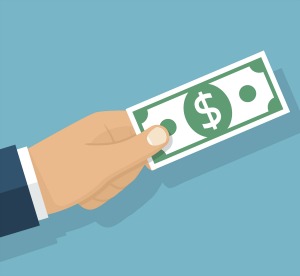‘Tis the season, and giving is on the mind. We’ve made our lists and checked them twice. Friends? Check. Teachers? Check. Co-workers? Check. Charities? Check. As we hustle and bustle to engage in this mass-scale giving exchange, it can be easy to lose sight of why we are doing all of this giving in the first place. Is this annual tradition just a test of our credit cards and tax write-off limits…or perhaps something more?
Why we give
Despite occasional grumbling over excessive consumerism and crowded stores, we return to this tradition year after year because giving makes us happy. We love knowing that our gift of time, talent, or treasure can make someone else’s life better or happier. But the truth is that the giver often receives far more than the recipient. In one study, Sonja Lyubomirsky asked students to commit five random acts of kindness each week for six weeks. Interestingly, the control group (who did not do acts of kindness) experienced a reduction in well-being, whereas those who engaged in acts of kindness showed a 42 percent increase in happiness. Giving not only releases a dopamine high that makes us feel happier, but it also improves our physical health, increases our life satisfaction, and lengthens our longevity. Another study found that we’re also happier when we spend money on other people more so than when we spend money on ourselves. So giving to charities is actually a great way to put a spring in your own step!
Why we don’t give
Given all of these benefits, the question remains: why don’t we give to charities all the time? Frankly, because giving takes a lot of time, money, and mental energy. Despite our best intentions, we get overwhelmed when we stop to think about to whom to give. The top three reasons that people cite for not giving as much as they would like:
- I don’t have enough money to make a difference.

- I don’t know where to give my money.
- I don’t know if my money will really be used for good.
But what if we could make giving to charities easier for all?
How to Make Giving a Way of Life
Thanks to technology, giving back has become simpler and more efficient than ever. App developers understand that the best way to facilitate giving is to make it easy, straightforward, automatic and tangible. To that end, they have begun creating a new wave of apps that dovetail with your existing activities but leverage corporate sponsorships to raise money for charities.
Orange Theory Fitness, for example, has a partnership with Sweat Angels through which it makes donations to a designated charity for every member’s “check in” on Facebook. With the power of crowdfunding, these small donations add up to big benefits for charities. In my upcoming book The Future of Happiness, I share examples of how technology can help make giving a way of life. Here are five of my favorite apps to help you do so:
- Charity Miles Charity Miles donates ten cents to your favorite nonprofit for every mile you bike and twenty-five cents for every mile you run.
- Feedie Use the Feedie app to post a photo of your food on social media and participating restaurants will make a donation to help feed orphaned and at-risk schoolchildren in South Africa.
- Spare Round up your dining-out bills to the nearest dollar to fight hunger in your own city.
- Donate a Photo For every photo you share through Donate a Photo, Johnson & Johnson gives $1 to a cause you want to help.
- Check-in for Good Using geo-targeted advertising, the app connects businesses and individuals that share a passion for the same causes. Then all you have to do is check-in when you visit, and the business will make a donation on your behalf and give you exclusive promotional offers as well.
By developing a habit of giving, not only do we increase our happiness levels, but we also create a ripple effect of positivity in our families and communities. So this holiday season, take time to give—and then carry that glow into the New Year by infusing your everyday life with a habit of giving.
Amy Blankson, aka the ‘Happy Tech Girl,’ is on a quest to find strategies to help individuals balance productivity and well-being in the digital era. Amy, with her brother Shawn Achor, co-founded GoodThink, which brings the principles of positive psychology to life and works with organizations such as Google, NASA and the US Army. Her upcoming book is called The Future of Happiness: 5 Modern Strategies for Balancing Productivity and Well-being in the Digital Era (April 2017).












